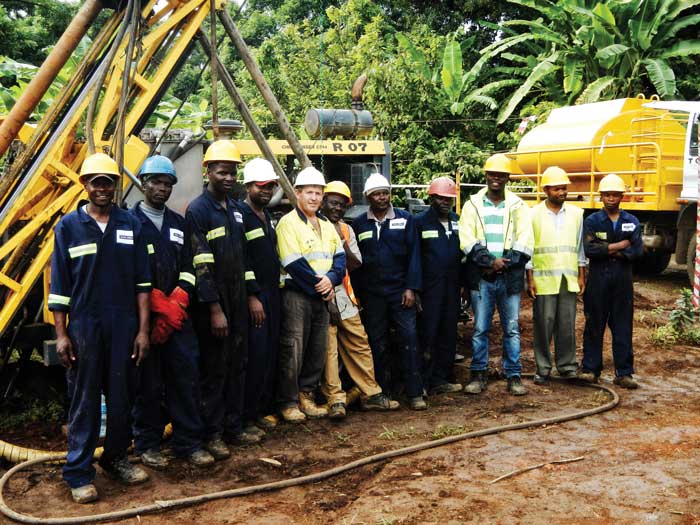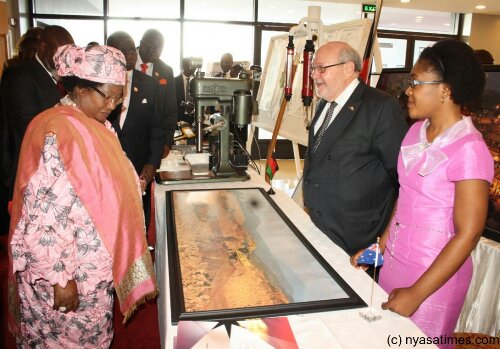Production at Kayelekera Uranium Mine (KUM) in Karonga jumped 15 percent in the quarter ending March 2012 over the previous quarter, according to the quarterly activities report.
Uranium output went up to 724 552 (lb) pounds U3O8 from the previous quarter’s 631 780 pounds U3O8, the figures show.

But the report said production was temporarily impacted by the use of a lower-cost reagent that was tested and proved problematic.
KUM is owned by Paladin (Africa) Limited, a subsidiary of the Australian Stock Exchange (ASX)-listed Paladin Energy Limited.
“The crushing/grinding circuit operated well. Resin-in-Pulp (RIP) and elution operational issues continue to focus mostly on resin management and corrosion mitigation. Refurbishment projects in these circuits, for corrosion mitigation, are progressing well,” reads the report in part.
Overall, says the report, recovery was down 1.5 percent as a result of treatment of a higher component of reduced arkose ore and delays in peroxide deliveries due to dockside weather.
“Measures have been put in place to increase stocks of peroxide on site. Landslip mitigation of the areas to the west of the plant is complete. Ground movement is stable and monitoring is ongoing by external consultants,” says the company.
Last year, the mine registered a landslip which affected mining activities.
According to Paladin Africa general manager (International Affairs) Greg Walker, the landslip was not a common event and was confined to a slope adjacent to the plant site and it was not captured in the initial Environmental Impact Assessment (EIA).
Apart from KUM, Paladin also owns Langer Heinrich Mine (LHM) in Namibia and the combined sales for the quarter were 1.1 million pounds [U3O8] generating revenue of $67.3 million (K11.2 billion). Average sales price were at $59.17 (K9 881) per pound U3O8.
But Walker said the details on how much sales KUM achieved are not available “until we report our detailed financials next month (rather than our broader activities report)”.
The company reported that due to export constraints within Malawi, the batch of confirmation assays from the 2011 drilling programme sent to Australia was delayed by approximately three months.
“The samples have now been prepared in South Africa prior to the transport of pulps to Australia. Results are expected within the next month. Consequently, the mineral resource estimate update will be delayed until late in the June 2012 quarter,” said the report.
However, it said the evaluation of the regional exploration drilling completed last year has indicated a number of promising targets and follow-up drilling is planned once work can resume in May after the wet season.
Last December, Paladin issued a statement, saying KUM is yet to break even arguing the miner’s running costs, including wages and salaries, are funded by the parent company in Australia.
“Rather than making substantial profits from its Malawi operations, in view of the current world economic crisis and the significantly-reduced price of uranium oxide, Paladin has not received a single kwacha in return to its investment in Malawi of $500 million [K83.5 billion] over the past years,” says Paladin Africa in a statement.
According to the Economist Intelligence Unit (EIU), uranium mining is now the second largest export commodity accounting for an estimated 16 percent of revenue in 2011.





No comments! Be the first commenter?